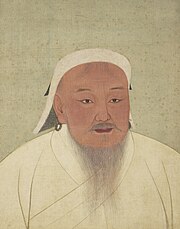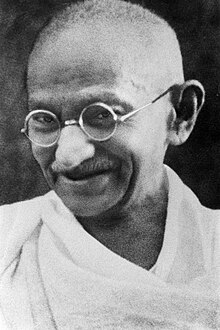Asia
Afghanistan
Ahmad Shah Abdali (1723–1773) unified the
Pashtun tribes and founded Afghanistan in 1747. His mausoleum is in
Kandahar, Afghanistan, where he is fondly known as Ahmad Shah Baba (
Father of Afghanistan).
Azerbaijan
Mammed Amin Rasulzade is the founding father of Azerbaijan. Mehemmed Emin Resulzade (Azerbaijani: Məhəmməd Əmin Axund Hacı Molla Ələkbər oğlu Rəsulzadə, Turkish: Mehmed Emin Resulzâde; 31 January 1884, Novkhana, near Baku — 6 March 1955, Ankara) was an Azerbaijani statesman, scholar, public figure and one of the founding political leaders of Azerbaijan Republic (1918–1920). His expression "Bir kərə yüksələn bayraq, bir daha enməz!" ("The flag once raised will never fall!") has become the motto of the independence movement in Azerbaijan in the 20th century.
Bangladesh
Sheikh Mujibur Rahman (1920–1975), is generally considered as the founder of the People's Republic of Bangladesh and was also the first
President of Bangladesh. A charismatic politician and popularly called "Bangabandhu" (friend of the
Bengal), Mujib's political career featured a struggle for democracy and defiance against military rule in Pakistan. He declared Bangladesh's independence in March 1971
[19] immediately after the
Pakistan Army began its infamous
Operation Searchlight massacre and was subsequently arrested and kept in solitary confinement in
West Pakistan throughout the
nine-month long bloody war. He was released in January 1972 and returned to Bangladesh to lead the newly independent country.
In an opinion poll conducted by the
BBC Bengali service in 2003, he was voted as the greatest
Bengali of all times.
Bhutan
Shabdrung Ngawang Namgyal (1594–1651) fled Tibet and unified the fiefdoms of Bhutan. He established the dual system of shared power between secular and Buddhist leadership that continues as a tradition to the present.
Burma
General
Aung San is the founding father of Burma (also known as Myanmar). Although he did not live to see the country's independence, he is credited in forming the basic structure of the independence movement and government. Aung San started his political career in 1930 as the editor of Rangoon University's Newspaper – where he accused one of the British administrators of misconduct. In late 1940 he went to Japanese controlled Taiwan and
Xiamen to receive military training, and he led the
Burmese National Army, spearheading the
Japanese invasion of Burma. Later, he switched sides to the Allies, and helped in the
Burma Campaign. After the war, he was appointed to the government of a returning British Administration, and was able to negotiate Burma's independence. He helped organized the
Panglong Agreement in February 1947, achieving independence for all Burmese territories. However, on Saturday, 19 July 1947, Aung San, along with his cabinet ministers, was assassinated at the secretariat building in Rangoon.
Republic of China
Sun Yat-sen is revered as the "Father of the Country" (國父) in the Republic of China. However, following the
Chinese Civil War, the country was split up into two states. The new nations were the modern day People's Republic of China, and the Republic of China, commonly referred to as Taiwan.
Mao Zedong is commonly accredited with being the architect of the People's Republic of China.
Chiang Kai-shek is accredited with being the first leader of the
constitutional Republic of China.
India
Mahatma Gandhi (1869–1948) is often referred to as the founding father of India. He was one of the top leaders of the
Indian National Congress which struggled for the liberation of India from
British rule.
Jawaharlal Nehru (1889–1964), the first
Prime Minister of India and
Sardar Vallabhbhai Patel, India's First Deputy Prime Minister, are also considered as founding fathers.
[21] It also refers to Dr.
Bhimrao Ramji Ambedkar (1891–1956), the architect of the Indian constitution, also an educationist, prominent political figure and India's first law minister. Indian constitution provided constitutional guarantees and protections for a wide range of civil liberties for individual citizens, including freedom of religion, the abolition of untouchability and the outlawing of all forms of discrimination. Ambedkar argued for extensive economic and social rights for yong boy. The Constitution was adopted on 9 August 1949 by the Constituent Assembly.
Although this usage is declining, when used in the plural, as the "Founding fathers" it usually refers to the members of the Constitutional Assembly's Draft Committee. Ironically the Drafting Committee also included women among its ranks.
Indonesia
Soekarno and
Mohammad Hatta are the founding fathers of Indonesia. They both signed the Proclamation of Independence which then read by Soekarno, proclaiming the independence of Indonesia from the Netherlands on 17 August 1945. A day later, they were elected respectively as the first President and Vice President of Indonesia. As the Netherlands did not recognize the independece, both of them were prominent figures and were seen as symbol of unity among Indonesian people to fight against Dutch during the
National Revolution from 1945 to 1949. In August 1949, Hatta headed a delegation to the
Hague for a
Round Table Conference which then led to the recognition of Indonesian independence by the Netherlands in 23 December 1949.
Iran
Korea
Hwanung (환웅;桓雄) and his son
Dangun Wanggeom (단군왕검; 檀君王儉) are legendary founders of
Gojoseon, the first kingdom of Korea. The founding date is usually calculated as 3 October 2333 BC; 3 October is a South Korean national holiday known as
Gaecheonjeol (개천절, 開天節, "Festival of the Opening of Heaven").
Malaysia
Tunku Abdul Rahman (8 February 1903 – 6 December 1990) usually known as "the Tunku" (a princely title in Malaysia), and also called
Bapa Kemerdekaan (Father of Independence) or
Bapa Malaysia (Father of Malaysia), was
Chief Minister of the
Federation of Malaya from 1955, and the country's first Prime Minister from independence in 1957. He remained Prime Minister after
Sabah,
Sarawak, and Singapore joined in 1963 to form Malaysia.
Mongolia

Genghis Khan posthumous portrait Chinggis Khagan (c.1162–1227), who by uniting the nomadic tribes founded the
Mongol Empire, is generally regarded as the father of modern-day Mongolia. Although downcast during the
communist-era, Genghis Khan's reputation surged after the democratic revolution in 1990. Modern Mongolia is often called "Genghis's Mongolia".
Pakistan

Muhammad Ali Jinnah, as a young lawyer. Mr. Jinnah started his career as firmly a secular Indian nationalist and later on was reluctantly converted to the cause of Muslim nationalism through the efforts of
Aga Khan III, martyred Prime Minister
Liaqat Ali Khan and Poet Philosopher
Allama Iqbal all of whom are also revered to a certain extent as founding fathers. Aga Khan was also the founding president of the
All India Muslim League.
Choudhary Rahmat Ali coined the term Pakistan and is considered the father of the word "Pakistan". Muslim modernist and reformist
Sir Syed Ahmed Khan, the founder of
Aligarh Educational Movement, is sometimes referred to as the father of the
Two-Nation Theory, the basic principle on which Pakistan was founded.
Philippines
Jose Rizal did not live long enough to see the
Philippine Declaration of Independence from Spain. or the subsequent defeat of the fledgling government by the
United States, but he did play a prominent role in building a sense of national identity in the Philippines. A novelist and a critic, he wrote very influential books, so influential that he was exiled by the Spanish government to the southern Philippine island of
Mindanao, and when he left exile, executed, on 30 December 1896. During the
Philippine Commonwealth, which was still under the rule of the United States, he was declared the official National Hero of the Philippines and subsequent to
Philippine Independence laws were passed requiring courses on Rizal in all secondary schools and colleges.
Regards Nabeel Copyright Wikipedia




